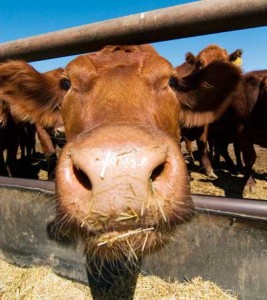Category Archives: Front Groups
Martosko has questions. We’ve got answers.
 Yesterday, David Martosko of HumaneWatch published five questions for his followers to ask Wayne Pacelle at the HSUS town hall meeting in Lincoln, Nebraska. The answers are readily available at the HSUS website, Wayne Pacelle’s blogs, and in related websites.
Yesterday, David Martosko of HumaneWatch published five questions for his followers to ask Wayne Pacelle at the HSUS town hall meeting in Lincoln, Nebraska. The answers are readily available at the HSUS website, Wayne Pacelle’s blogs, and in related websites.
Using these materials, I have taken the liberty of putting together some answers that Wayne Pacelle or another HSUS employee might give to Mr. Martosko’s questions. Please note: I do not work at the HSUS and have not run these answers by anyone from that organization. These are simply my answers based on reading their materials.
1. “In 1980 at HSUS’s annual meeting, the group made it official policy to – and I quote – ‘pursue on all fronts … the clear articulation and establishment of the rights of all animals … within the full range of American life and culture.’ Is this still HSUS’s goal? If you’re trying to give so-called ‘rights’ to cows, pigs, and chickens, why wouldn’t that completely destroy the entire livestock industry?”
The HSUS works to get protections for animals. It is not so much a question of animal rights as human responsibility. Humans have the responsibility to treat animals humanely, and this includes animals raised for food, which are by far the largest percentage of animals used by humans. Unfortunately, we do not always treat farm animals humanely. This happens in two ways. First there is treatment that everyone agrees is abuse, such as what the HSUS and even a USDA inspector has uncovered at multiple slaughter plants. People were kicking calves and ramming them with electric prods, or using forklifts to move cows. Despite such violations of the Humane Slaughter Act, people at these plants were treating animals this way on a routine basis. When an inspector tried to report it, his managers demoted him and kept the plant open. In this case the laws on the books were clearly not working, and the HSUS stepped in to help bring this situation to the attention of state and federal authorities.
Second, there are standard operating procedures in industrial agriculture that are legal but which the HSUS and the general public see as inhumane. These include the intensive confinement of veal calves, pregnant pigs, and laying hens in cages so small they can’t turn around and cannot perform any natural behaviors such as rooting, nesting or perching. Most people understand that an animal needs to be able to move around and perform natural behaviors, but intensive agriculture denies these basic needs. They even deny that these animals have natural behaviors, despite the fact that they have evolved over millions of years, yet it has only been in the past few decades that we have seen widespread use of intensive confinement. This intensive confinement also leads to food safety problems such as the salmonella outbreak we saw from the DeCoster egg operations that sickened half a million people and led to the largest egg recall in our nation’s history. When animals are that stressed, they are likely to get sick. Antibiotics are not the answer, as this has only led to new forms of drug-resistant bacteria that threaten human health. The HSUS sees the answer as getting the animals out of intensive confinement and into a housing system where they can move around and express natural behaviors.
The HSUS is not out to put an end to animal agriculture as many of our opponents have charged. Their purpose is to look out for the welfare of the animals in these systems. If the Humane Society of the United States were to ignore the welfare of over 1 billion animals killed for food each year — by far the largest sector of animal use by humans — then it would not be doing its job.
2. “Can you name a specific meat, dairy, or egg brand that you and the Humane Society of the United States have endorsed?”
Sure. The HSUS supports humane and sustainable farmers like Kevin Fulton, who arranged this town hall meeting in Lincoln, Nebraska. Kevin runs a pasture beef operation in which cattle are allowed to graze freely on a natural diet of grass, which cows were evolved to eat. The HSUS is also one of 30 animal welfare groups that supports the Certified Humane label. You can see a list of Certified Humane farmers and ranchers on their website. The HSUS also supports the new Global GAP animal welfare standards, implemented just last week by Whole Foods. Again, the HSUS is not out to end animal agriculture. Its purpose is to put an end to the worst abuses on our nation’s factory farms.
3. “If you got a federal law passed that demanded a nation-wide switch to the kind of livestock production mandated by California’s ‘Proposition 2’ law, would you and HSUS be satisfied with your achievement and completely dissolve the animal-agriculture part of your organization?”
Certainly the HSUS would be thrilled to pass a law that switches the nation to a Proposition 2 type of livestock production. However, it would be irresponsible for the HSUS to ever dissolve the animal agriculture part of its organization. As stated previously, farm animals make up by far the largest percentage of animals used by humans in the United States. The HSUS would not be doing its job if it did not continue to look out for the welfare of these animals. That might consist of continuing to work for better laws to protect these animals. But it might also consist of working to see that current laws are being properly enforced. As we have seen with the Humane Slaughter Act, which the HSUS was instrumental in getting passed in 1958, our nation’s laws are not always followed, and sometimes when they are not, people in charge look the other way. So the HSUS must continue to be vigilant in making sure farm animals are treated humanely and according to the law, and that the law is being followed on farms, at auctions, in slaughterhouses, and anywhere else humans are making widespread use of these animals.
4. “Is there such a thing as meat that’s ‘humane’ enough that your ethics permit you personally to eat it? If so, where can we buy some? If not, what’s the difference between your group and PETA?”
Wayne Pacelle has not eaten meat for at least two decades, so he would likely choose not to eat meat of any sort. However, that is his choice, and not one he asks everyone to make, including employees of the HSUS. Nowhere is there a clause requiring HSUS employees to adhere to a certain diet. That is one difference between the HSUS and PETA, as PETA does require certain employees to adhere to a vegan diet. PETA also has a mission statement that precludes any use of animals by humans for any purpose. The HSUS has no such mission statement. Its mission is to celebrate animals and confront cruelty, which is what it does, whether cruelty occurs on a factory farm, at a puppy mill, or in an animal fighting operation, canned hunt, fur farm, or anywhere else.
5. “In HSUS’s Articles of Incorporation – its founding documents – you’ll find the following declaration: ‘No substantial part of the activities of the corporation shall consist of the carrying on of propaganda or otherwise attempting to influence legislation.’ Has that been changed since 1954? If not, what on earth have you been doing all these years? Isn’t your job to propagandize and influence legislation? Isn’t that what Prop. 2 in California and Prop. B in Missouri were all about?”
The Humane Society of the United States does not do direct lobbying or campaigning for candidates for political office. It does have an affiliated 501(c)(4) organization, the Humane Society Legislative Fund, that works to pass animal protection laws at the state and federal level, to educate the public about animal protection issues, and to support humane candidates for office. The HSLF tracks votes by members of Congress on animal protection issues and creates a Humane Scorecard to inform voters who care about these issues.
The HSUS has also worked with coalitions such as Californians for Humane Farms and Missourians for the Protection of Dogs to help pass ballot measures in specific states. It is certainly not the only member of these coalitions. For example, Missourians for the Protection of Dogs was also supported by the ASPCA, Best Friends Animal Society, Humane Society of Missouri, Missouri Alliance for Animal Legislation, and Tony LaRussa Animal Welfare Foundation. It was also endorsed by over 150 veterinarians and clinics, over 160 Missouri businesses, and over 100 other animal protection charities. These initiatives have broad support in the states where they have been put to a vote, sometimes winning by a landslide as in the case of Proposition 2 in California, because they are reasonable, common sense reforms that most people want to see passed.
As you can see from this blog entry, which I put together in less than an hour, the answers to Mr. Martosko’s questions are not hard to find. Unfortunately, Mr. Martosko’s purpose is not to look for fair and balanced information about the HSUS, but to destroy the HSUS by any means necessary including slander and lies so that it cannot work for welfare reforms that might threaten the profits of those who fund HumaneWatch. My question to Mr. Martosko is: When are you going to stop waging a smear campaign against the Humane Society of the United States and join the rest of the country in embracing actual animal welfare?
HumaneWatch blames the whistleblowers
 Crush videos are so abhorrent that even members of Congress agree they need to be stopped. Nancy Perry, HSUS VP of Governmental Affairs was called before a Senate Judiciary hearing this morning to testify about the problem. The recent HSUS undercover investigation helped spotlight a resurgence of crush video activity following the SCOTUS decision invalidating the Depictions of Animal Cruelty Act.
HumaneWatch celebrated the SCOTUS ruling. In a veritable massacre of common sense, David Martosko complained that if HSUS is permitted to expose animal abusers through undercover video investigations, then crush video producers should be allowed to torture and kill pets for the sexual gratification of the viewers:
Crush videos are so abhorrent that even members of Congress agree they need to be stopped. Nancy Perry, HSUS VP of Governmental Affairs was called before a Senate Judiciary hearing this morning to testify about the problem. The recent HSUS undercover investigation helped spotlight a resurgence of crush video activity following the SCOTUS decision invalidating the Depictions of Animal Cruelty Act.
HumaneWatch celebrated the SCOTUS ruling. In a veritable massacre of common sense, David Martosko complained that if HSUS is permitted to expose animal abusers through undercover video investigations, then crush video producers should be allowed to torture and kill pets for the sexual gratification of the viewers:
If a movie of a furry animal being crushed under some pervert’s high-heeled shoe is detrimental to society, then so is the sort of purposely lurid and scandalous footage that continues to make HSUS the richest animal rights group in history.HumaneWatch has built a multi-million dollar enterprise around “shooting the messenger”, so it shouldn’t be surprising that in the echoing caverns of Martosko’s brain, exposing animal cruelty is somehow equivalent to committing it. And perhaps that’s why HumaneWatch continually finds fault with HSUS for exposing cruel and unhealthy practices in slaughterhouses: to a HumaneWatcher, it’s the whistleblower that’s guilty, not the criminal. You can read a transcript of the HSUS Senate testimony on Wayne Pacelle’s blog.
The truth is not HumaneWatch’s friend
 Last night, our webmaster repeated his invitation to David Martosko to explain his side of the story in the “Sock Puppet Shenanigans”. The post made on the Facebook “HumaneWatch” group read as follows:
Last night, our webmaster repeated his invitation to David Martosko to explain his side of the story in the “Sock Puppet Shenanigans”. The post made on the Facebook “HumaneWatch” group read as follows:
Dear Mr. Martosko: I recently contacted you regarding your claim that HSUS was involved in an incident of “sock puppetry” on the blog of a respected veterinarian, Dr. Patty Khuly. Have you received my letter? I know that HumaneWatch.org mail servers were experiencing technical difficulties during that time, but fortunately, there’s a copy of it available at http://humanewatch.info/blog/?p=168 if you have not read it. I am concerned that you have made intentionally false and defamatory claims about HSUS involvement in this matter, despite Dr. Khuly’s having informed you prior to 7/12 that she had no evidence that HSUS was responsible in any way. I respectfully invite you to correct any erroneous statements you have made on your June 30th blog post, and if you are so inclined, to provide your perspective on the matter. I will be happy to publish your statement verbatim on the humanewatch.info website, completely unedited. At the very least, I would appreciate the courtesy of a response, even if that response is simply “No comment”. I look forward to your reply, and thank you for your time. Sincerely, John Doppler Schiff Webmaster, HumaneWatch.infoThe post was immediately deleted without comment, as most dissenting opinions on HumaneWatch’s Facebook group are. So much for courtesy! Or courage. Or integrity. This was not unexpected, however. HumaneWatch has a history of ignoring any facts that run counter to their “we hate HSUS” message, and Martosko is quick to delete any post that doesn’t wave the pom-poms with sufficient enthusiasm. It doesn’t matter how respectfully phrased or truthful that post is: HumaneWatch fears any information that might allow its readers to think for themselves. Consider the case of Atlanta’s WSB-TV. The station ran a segment covering HSUS’ handling of the funds raised for Hurricane Katrina rescue operations, and it relied heavily on misinformation provided by CCF. When the station discovered it had been duped, it immediately pulled the footage of the broadcast and issued a correction. CCF continued to willfully promote copies of the broadcast as “proof” of HSUS wrongdoing, without bothering to mention the correction. This prompted WSB-TV to send an angry cease-and-desist letter demanding that CCF stop referencing the broadcast without referencing the correction. CCF’s response? They fired off a lame, baseless accusation that the Humane Society forged the letter. When WSB-TV demanded that YouTube pull all copies of the broadcast from its servers, CCF resorted to linking to an illegal copy hosted on a video sharing site in Iran. To this very day, HumaneWatch continues to hold up that invalidated report as “proof” of their arguments — without the correction that tells the rest of the story. So, CCF fed false information to a reporter, and then used the resulting story to claim that the false information they fed the station was correct. That’s just one example among many of CCF/HumaneWatch deception. If the facts are on HumaneWatch’s side, why do they resort to misinformation, sleazy tactics, and desperate attempts to stifle honest discussion? They do it because the conclusions HumaneWatch presents do not stand up to scrutiny. They do it because the truth is not a friend to HumaneWatch, and any facts that run counter to HumaneWatch propaganda must be suppressed or ignored. Unfortunately for David Martosko, no matter how deeply he buries his head in the sand, the truth will not go away. Neither will we.
An open letter to David Martosko
Last week, you posted an article claiming that HSUS was responsible for a series of posts with phony names. [ URL: http://humanewatch.org/index.php/site/post/sockpuppetry_and_other_hsus_shenanigans/ ]
On July 3rd, on the HumaneWatch.info blog, we publicly challenged you and Dr. Khuly to back up your allegations with whatever evidence you possess. [ URL: http://humanewatch.info/blog/2010/07/03/sockpuppets-and-slander/ ]
Thus far, neither you nor Dr. Khuly have presented any evidence verifying your claims. Nothing. In fact, you have not responded to our inquiries, you have suppressed comments inquiring about the issue, and seem to be desperately avoiding the subject.
In light of your actions and in the absence of any proof substantiating your claims, we are forced to conclude that you have made intentionally false statements defaming the Humane Society of the United States.
However, our offer stands: if you would like to present your evidence or a statement defending your claims, we will gladly publish it verbatim. (Unlike HumaneWatch.org, we do not suppress the truth or dissenting opinions. We have great confidence in our readers’ intelligence. Why don’t you?)
On behalf of the staff of HumaneWatch.info, I look forward to your reply.
Sincerely,
John Doppler Schiff
Webmaster, HumaneWatch.info
